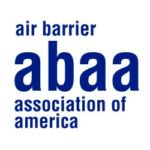Member Spotlight: Brian Carey
The Air Barrier Association of America (ABAA) dives inside the career of Brian Carey, Product Manager for Carlisle Coatings & Waterproofing in Wylie, TX. In this feature interview, learn what made him become an ABAA member, what led him on his career path, and get his perspective on the future of the air barrier industry.
 Brian Carey, CSI, CDT
Brian Carey, CSI, CDT
Brian Carey has been employed by Carlisle Coatings & Waterproofing since 2004 where he serves as the company’s Air Barrier Product Manager. Carey has worked in the coatings, sealants and adhesives business since 1994. He holds a Bachelor of Science degree in Chemical Engineering and a Bachelor of Arts degree in French, both from the University of Michigan in Ann Arbor. He is an active member of the Air Barrier Association of America (ABAA) and the International Institute of Building Envelope Consultants (IIBEC, formerly RCI). Carey also holds a Construction Documents Technologist (CDT) certification from Construction Specifications Institute (CSI). Over the years, Carey has led the launch of many air barrier products, has supported and witnessed the installation of millions of square feet of air barrier, and has contributed to the drafting and publication of many air barrier standards.
Name: Brian Carey
Title: Product Manager
Firm: Carlisle Coatings & Waterproofing
City: Wylie, TX
What was the path to your career — how and why did you pursue a profession as an air barrier product manager?
A: I studied Chemical Engineering in college, and I ended up in the adhesives, sealants and coating business by chance. It was the first good job I found after graduating. I spent 10 years in the manufacturing/OEM sector until I moved to Carlisle back in 2004 into the brand-new air barrier business. I’m still managing Carlisle’s air barrier business today, as it has grown tremendously since I first started.
Is there anything that you believe everyone in this industry should be working towards?
A: The industry should always strive for integrity and transparency when it comes to material traits and performance. Unfortunately, the standard test methods for air and water resistive barriers are inadequate to characterize materials that are supposed to last for the life of a building. Furthermore, test results of limited relevancy are often used as spec hooks that can result in design professionals favoring inferior and unnecessarily costly materials.
What role have peers, mentors, or advisors played in your career?
A: Their role has been to make me who I am now. When I started at Carlisle I knew nothing about air barriers or construction. It is entirely through correspondence with peers and experts that I have accrued the knowledge I have today. I still learn something new every day by interacting with others in the industry.
What led you to become an ABAA member?
A: When I just joined Carlisle in 2004, my boss told me that I had to join ABAA, got go the meetings, get Carlisle into good standing and get our products ABAA-evaluated. I did their bidding, but I have remined a member to this day for product promotion, knowledge and the development of the industry.
Are you involved in any ABAA committees? Do you have any ABAA certifications?
A: I was the technical committee chairman for several years after I first joined ABAA in 2004. I was also on the Board of Directors from 2006-2018. I am not in any ABAA committees now.
How long have you been in the industry?
A: 17 years.
What major changes have you seen?
A: Air barriers in the Code, more air barrier manufacturers, more types of air barriers. Air barrier business in the USA has gone from a niche business in New England to a large national business. AVB is a major part of Carlisle’s product portfolio, and with many of our competitors too.
What traits or skills do you think are necessary to be able to succeed in your industry?
A: First, you need to have an interest in knowing about how buildings are built, and a desire to learn about how this can be improved. You need to be humble and willing to learn. Need to be hard-working, willing to go where the action is and willing to get dirty working in the field. You need to be reliable and accessible. Most important, you need honesty and integrity so you can build build trust and credibility.
Do you have any advice for anyone starting out in your field?
A: Learn technical stuff: CAD software and how to make construction drawings OR how to perform product trainings OR all about spray equipment OR how to do material and assembly testing OR how to perform jobsite visits. You’ll be hired immediately if you can gain proficiency in any one of these areas. Be willing to learn and ready to do your best.
How much demand do you think there is for people in your profession?
A: A lot of demand and growing. Especially for technical/field service positions.
What do you think the industry will look like in five or ten years’ time?
A: I think the industry will have found ways to cut costs and by reducing dependency on skilled labor and eliminating/consolidating steps in assembly. For example, factory-built assemblies will be used more often. Air barrier systems will have a lower installed cost, be easier to install and be more forgiving of the construction schedule.
